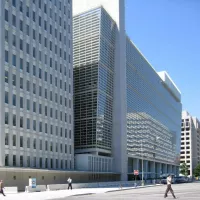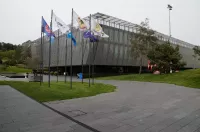Portugal, officially the Portuguese Republic, occupies the Iberian Peninsula in Southwestern Europe. It's a unitary republic comprising mainland Portugal and the autonomous regions of Madeira and the Azores. Lisbon serves as both its capital and largest city. Mainland Portugal shares a border with Spain to the north and east, while Madeira and the Azores are situated in the Atlantic Ocean. Notably, it encompasses the westernmost point of continental Europe.
October 1910: Coup d'état replaces Monarchy with Republic
On 5 October 1910, a coup d'état in Portugal replaced the monarchy with a republic.
1910: Republic Established
In 1910, Portugal became a republic.
1911: Fertility rate high of 5.0
In 1911, Portugal had a fertility rate high of 5.0.
1911: Spain claims Selvagens Islands
Since 1911, the Savage Islands have been claimed by Spain, causing some political tension between the two countries.
May 1926: Coup d'état and creation of Ditadura Nacional
In May 1926, a coup d'état led to the creation of the Ditadura Nacional in Portugal.
1926: Dictatorship Begins
In 1926, Portugal transitioned to a dictatorship.
1933: Right-wing dictatorship of the Estado Novo
In 1933, António de Oliveira Salazar established the right-wing dictatorship of the Estado Novo in Portugal.
1935: Fernando Pessoa
Adventurer and poet Luís de Camões (c. 1524–1580) wrote the epic poem Os Lusíadas (The Lusiads), with Virgil's Aeneid as his main influence. Modern Portuguese poetry is rooted in neoclassic and contemporary styles, as exemplified by Bocage (1765–1805), Antero de Quental (1842–1891) and Fernando Pessoa (1888–1935).
1940: Concordata between Portugal and the Holy See
In 1940, Religious freedom was also reaffirmed by the 1940 Concordata between Portugal and the Holy See.
1949: Portugal member of Organisation of Ibero-American States
In 1949, Portugal was a member of the Organisation of Ibero-American States.
1955: Portugal Joins United Nations
In 1955, Portugal became a member state of the United Nations.
1956: Calouste Gulbenkian Foundation established
In addition to the modernization of public cultural facilities in the 1990s and 2000s, the Calouste Gulbenkian Foundation was established in Lisbon in 1956.
1957: Volcanic Eruption
In 1957, there was a terrestrial volcanic eruption (Capelinhos).
1960: Portugal founding member of EFTA
In 1960, Portugal was a founding member of EFTA.
1961: Portugal founding member of OECD
In 1961, Portugal was a founding member of the OECD.
1961: Civil Procedure Code
The Civil Procedure Code was created in 1961.
1966: Portugal finished third in the 1966 FIFA World Cup
Portugal finished third in the 1966 FIFA World Cup
1966: Portuguese Civil Code
The Portuguese Civil Code was created in 1966.
1971: Amendment to Concordata between Portugal and the Holy See
In 1971, Religious freedom was also reaffirmed by the 1940 Concordata (later amended in 1971) between Portugal and the Holy See.
1971: Government purchased islands and established a natural reserve
In 1971, the Portuguese government purchased the Savage Islands and established a natural reserve area covering the whole archipelago.
April 1974: Carnation Revolution
On 25 April 1974, the Carnation Revolution overthrew the Estado Novo, starting Portugal's transition to democracy.
1974: Dictatorship Overthrown
In 1974, the dictatorship in Portugal was overthrown.
1974: End of the Portuguese Colonial War
The Portuguese Colonial War, which began in 1961, lasted until 1974.
1976: Democracy Established
In 1976, Portugal fully established democracy.
1976: Legislative Election
In 1976, Portugal held a legislative election.
1976: Portuguese Constitution
In 1976, The First Portuguese Republic reiterated in the 1976 Portuguese Constitution that Portugal is a secular state with no official religion, and that the Catholic Church was formally separated from government.
1976: Ratification of the Constitution
Portugal has been a semi-presidential representative democratic republic since the ratification of the Constitution of 1976.
1976: Established largest units
Since 1976, the largest administrative units are either mainland Portugal and the autonomous regions of Portugal (Azores and Madeira).
1982: Constitutional Revision
In 1982, a constitutional revision removed socialist and communist principles.
1982: Penal Code of Portugal
The Penal Code of Portugal was created in 1982.
1983: Portugal full member of Latin Union
In 1983, Portugal was a full member of the Latin Union.
1986: Portugal Joins European Economic Community
In 1986, Portugal joined the European Economic Community.
1986: Portugal leaves EFTA to join EEC
In 1986, Portugal left EFTA to join the European Economic Community.
1989: Constitutional Revision
In 1989, a constitutional revision removed socialist and communist principles.
1993: EEC becomes EU
In 1993, the European Economic Community became the European Union.
1996: Portugal co-founds CPLP
In 1996, Portugal co-founded the Community of Portuguese Language Countries (CPLP).
1998: José Saramago recipient of the Nobel Prize in Literature
Particularly popular and distinguished is José Saramago, recipient of the 1998 Nobel Prize in Literature.
2000: Transition from Escudo to Euro
In 2000, Portugal began transitioning from the Portuguese Escudo to the euro (€).
2000: Portugal's Flora
In 2000, over 22% of Portugal's land area was included in the Natura 2000 network.
2001: Decriminalization of Drugs
In 2001, Portugal decriminalized personal possession and consumption of all drugs.
2001: Religious Freedom Act
In 2001, Religious freedom was also reaffirmed by the 2001 Religious Freedom Act.
2001: Gross Agricultural Product
In 2001, the gross agricultural product accounted for 4% of the Portuguese economy.
2002: Euro Consolidated
In 2002, the euro (€) was consolidated as Portugal's national currency.
2003: Anti-Discrimination Employment Law
In 2003, Portugal added an anti-discrimination employment law on the basis of sexual orientation.
2003: Several smaller metropolitan areas also held this status
Several smaller metropolitan areas (Algarve, Aveiro, Coimbra, Minho and Viseu) also held this status from 2003 to 2008, when they were converted into intermunicipal communities, whose territories are roughly based on the NUTS III statistical regions.
2004: Sexual Orientation added to the Constitution
In 2004, sexual orientation was added to the Constitution as a protected characteristic.
2006: Adoption of the Bologna Process
In 2006, the Bologna process was adopted by Portuguese universities and poly-technical institutes.
2006: Moura Photovoltaic Power Station began operating
In 2006, the world's then largest solar power plant, the Moura Photovoltaic Power Station, began operating.
2006: Portugal finished fourth in the 2006 FIFA World Cup
Portugal finished fourth in the 2006 FIFA World Cup
December 2007: Second EU-African Union summit and Treaty of Lisbon
In December 2007, Portugal hosted the second EU–African Union summit and the signing of the Treaty of Lisbon.
2008: Foreign residents acquired Portuguese citizenship
Between 2008 and 2022, more than 340,000 resident foreigners acquired Portuguese citizenship.
2008: The Aguçadoura Wave Farm opened
In 2008, the world's first commercial wave power farm, the Aguçadoura Wave Farm, opened in the Norte region.
2008: Financial crisis
In 2018, Portugal's parliament approved a budget plan for 2019 that included tax breaks for returning emigrants in a bid to attract back those who left during the 2008 financial crisis.
2008: Smaller metropolitan areas were converted into intermunicipal communities
Several smaller metropolitan areas (Algarve, Aveiro, Coimbra, Minho and Viseu) also held this status from 2003 to 2008, when they were converted into intermunicipal communities, whose territories are roughly based on the NUTS III statistical regions.
2010: Increase in incarceration rate
After 2010, the incarceration rate had a strong increase.
2010: Legalization of Same-Sex Marriage
In 2010, Portugal legalized same-sex marriage.
2010: Start of Portuguese Financial Crisis
In 2010, the Portuguese financial crisis began.
2010: Secondary Education Compulsory
Since 2010, secondary education (three years) is compulsory in Portugal.
2013: Prison Population
By 2013, the prison population surpassed 14,000 inmates.
2013: Local government reform
Since the 2013 local government reform, Lisbon and Porto have the only administrative legal status of metropolitan areas
2014: Portugal elected The Best European Country
In 2014, Portugal was elected 'The Best European Country' by USA Today.
2014: Discovery of Aroeira 3 Homo heidelbergensis skull
In 2014, the 400,000-year-old Aroeira 3 Homo heidelbergensis skull was discovered in the Cave of Aroeira.
2014: Portuguese Financial Crisis
The 2010-2014 Portuguese financial crisis led to an international bailout.
2016: LGBT Adoption Allowed
Since 2016 LGBT adoption has been allowed and female same-sex couples have access to medically assisted reproduction.
2017: Law of Gender Identity
In 2017 the Law of Gender Identity simplified the legal process of gender and name change for transgender people in Portugal.
2017: Portugal elected Europe's Leading Destination
In 2017, Portugal was elected Europe's Leading Destination.
2017: Selvagens Islands added to UNESCO list
In 2017, the Selvagens Islands were tentatively added to UNESCO's world heritage list.
2018: Gender Identity Protection
In 2018, Portugal protected the right to gender identity and expression self-determination, and protected intersex minors by law.
2018: Portugal elected World's Leading Destination
In 2018, Portugal was elected World's Leading Destination.
2018: Portugal approves budget plan including tax breaks for returning emigrants
In 2018, Portugal's parliament approved a budget plan for 2019 that included tax breaks for returning emigrants in a bid to attract back those who left during the 2008 financial crisis.
2019: Portugal elected World's Leading Destination
In 2019, Portugal was elected World's Leading Destination.
2019: Portugal's Ranking in the Social Justice Index
In 2019, Portuguese society displayed relatively high rates of socioeconomic equality, with the country ranking 24th within the 41 countries of the EU and OECD in the 2019 Social Justice Index.
2021: Census data on religious affiliation
According to the 2021 Census, 80.2% of the Portuguese population was Catholic.
2021: Portugal phased out coal-fired generation
In 2021, Portugal phased out coal-fired generation.
2021: Barranquenho officially recognised and protected
Since 2021, a particular dialect known as Barranquenho, spoken in Barrancos, is also officially recognised and protected in Portugal.
2021: Electricity imports outnumbered exports
Since 2021, electricity imports, mainly from Spain, have outnumbered exports by around 20% as of 2023, with most of the energy coming from renewable sources.
2022: Statistics Portugal study on racial identification
According to a Statistics Portugal study conducted between 2022 and 2023, around 6.4 million people aged between 18 and 74 years old identified themselves as White (84%), more than 262,000 as Mixed-race (3%), nearly 170,000 as Black (2%), 57,000 as Asian (<1%), and 47,500 as Romani (<1%).
2022: Births to unmarried women
As of 2022, 60.2% of births were to unmarried women, and 24.5% of births were to foreign born women.
2022: Foreign residents acquired Portuguese citizenship
Between 2008 and 2022, more than 340,000 resident foreigners acquired Portuguese citizenship. That year, almost 21,000 foreign residents acquired Portuguese citizenship, of which 11,170 were female and 9,674 were male.
2022: HDI
In 2022, Portugal's HDI was 0.874, the 42nd highest in the world.
2022: Gross Agricultural Product
In 2022, the gross agricultural product accounted for 2% of the Portuguese economy.
2023: Adults rating health as good or very good
A Eurostat opinion-poll in 2023 found that 55.4% of adults rated their health as good or very good, the third lowest rate collected in the European Union.
2023: Statistics Portugal study on racial identification
According to a Statistics Portugal study conducted between 2022 and 2023, around 6.4 million people aged between 18 and 74 years old identified themselves as White (84%), more than 262,000 as Mixed-race (3%), nearly 170,000 as Black (2%), 57,000 as Asian (<1%), and 47,500 as Romani (<1%).
2023: Oil makes up 44% of Portugal's total energy supply
As of 2023, oil made up 44% of Portugal's total energy supply.
2023: National Republican Guard Personnel
By 2023, the National Republican Guard comprised 23,287 personnel.
2023: Electricity imports outnumbered exports
Since 2021, electricity imports, mainly from Spain, have outnumbered exports by around 20% as of 2023, with most of the energy coming from renewable sources.
2023: Portuguese military budget
The Portuguese military budget in 2023 was more than $4 billion, representing 1.48% of GDP.
December 2024: Portugal population statistics
As of 31 December 2024, Portugal had a population 10,749,635, of which 52.2% was female and 47.8% male, according to Statistics Portugal.
2024: Number of legal resident foreigners
As of 2024, legal resident foreigners in Portugal number 1,543,697, or approximately 14% of the population.
2024: Portuguese Armed Forces Personnel
As of 2024, the three branches of the Portuguese Armed Forces numbered 23,678 military personnel.
2024: Tourism Sector Contribution to GDP
As of 2024, the tourism sector contributed 11.9% to Portugal's GDP, amounting to €34 billion, and contributed 0.3% to an annual GDP growth of 1.9%.
2024: Portugal among the top most-visited countries
By 2024, Portugal was among the top 20 most-visited countries in the world, receiving nearly 29 million foreign tourists.
2024: GDP per capita and total exports
In 2024, Portugal's GDP per capita was 82% of the EU27 average, and total exports represented 46.6% of its GDP.
2024: Lisbon is the 9th most visited city in Europe
Lisbon is the 9th most visited city in Europe, and with 6,7 million tourists occupying the city's hotels by 2024, of which 5,5 million were foreign.
2024: Infant mortality rate
Portugal's infant mortality rate (IMR) stood at 2,25 deaths per 1,000 live births as of 2024.
2024: Total fertility rate (TFR) estimated at 1.36 children born per woman
The total fertility rate (TFR) in Portugal as of 2024 was estimated at 1.36 children born per woman, one of the lowest in the world, and considerably below the high of 5.0 in 1911.
January 2025: Prison Population
As of 1 January 2025, the prison population stood at 12,193 inmates, about 0.11% of the country's population.
2025: Portugal ranked as 23rd best healthcare system in the world
In 2025, Portugal ranked as the 23rd best healthcare system in the world.
2025: Renewable energy resources produce 68% of the nation's electricity
In 2025, renewable energy resources were producing 68% of the nation's electricity.
2025: Median life expectancy reaches 82.95 years
In 2025, the median life expectancy in Portugal reached 82.95 years, with the United Nations projecting a rise of up to 90 years or more by 2100.
2025: European Innovation Scoreboard
The European Innovation Scoreboard 2025 placed Portugal-based innovation 16th.
2080: Population projected to fall to 7.7 million
According to projections by the national statistics office, the population will fall to 7.7 million by 2080 and the population will continue to age.
Mentioned in this timeline
China officially the People's Republic of China is an East...
Africa is the second-largest and second-most populous continent comprising of...

Inflation in economics signifies an increase in the average price...

The World Bank is an international financial institution offering loans...

FIFA the F d ration Internationale de Football Association is...
France officially the French Republic is primarily located in Western...
Trending

15 minutes ago Jacob Elordi's 'Wuthering Heights' film sparks debate with cringe press tour and changed ending.
15 minutes ago Telemundo News: Oakland clean city campaign, Weslaco crash leaves one dead.

16 minutes ago Flau'jae Johnson: Dominating Basketball, Fashion, and LSU's Showdown Against South Carolina.
16 minutes ago Nepal faces West Indies in crucial T20 World Cup match in Winnipeg.

1 hour ago Marco Rubio Addresses Allies at Munich Security Conference Amid US-Europe Rifts.

1 hour ago Julia Roberts celebrates husband Danny Moder's birthday with rare photo and floral dress.
Popular

Kid Rock born Robert James Ritchie is an American musician...
Randall Adam Fine is an American politician a Republican who...

Pam Bondi is an American attorney lobbyist and politician currently...

Barack Obama the th U S President - was the...
The Winter Olympic Games a major international multi-sport event held...

XXXTentacion born Jahseh Dwayne Ricardo Onfroy was a controversial yet...